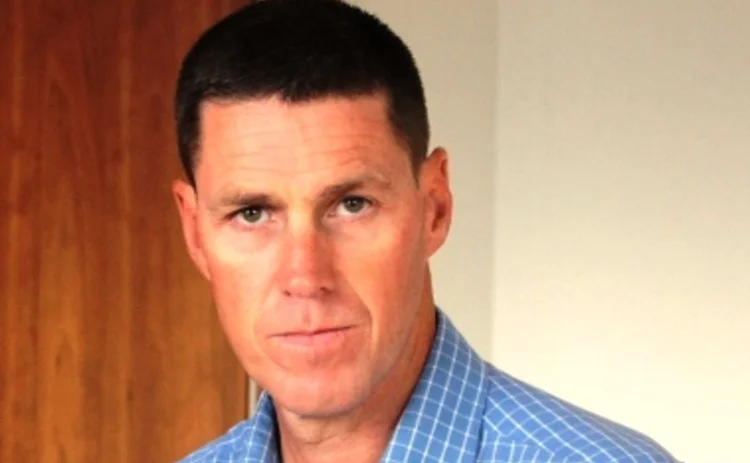June 2014: HFT: No Longer a Whale of a Time

I find it fascinating how people are able to adapt to change—both physiological and psychological—when necessary. On the physiological side, one need look no further for an example of this than the astonishing metamorphosis endurance athletes undergo when preparing for competition. Some of the changes take place literally on an intracellular level, where, for example, the number of mitochondria—the minute organelles responsible for generating the bulk of a cell’s chemical energy needs by way of adenosine triphosphate—increase, and by so doing enhance the athlete’s ability to carry out increased workloads, both in terms of intensity and duration.
Financial services firms have similarly been adapting to their new operating environment for some time now, as a consequence of the industry’s natural evolution and more explicit factors linked to regulatory changes, primarily in the wake of the 2008 global financial crisis. Similar to the discomfort athletes might feel during a tough anaerobic training session, financial services firms have been forced to deal with a variety of financial and operational challenges, although their pain is more organizational and financial than physical.
One such example of this need to adapt to change is highlighted in Jake Thomases’ news piece from the recent North American Financial Information Summit where panelists agreed that the once lucrative world of high-frequency trading (HFT) was now pretty much circling the drain.
Chris Bartlett, partner at New York-based HFT firm Nobilis Capital summed up the situation succinctly: “The opportunities in US equities for straight-speed, low-latency arbitrage are pretty much gone, unless you are a major player. The days of three people who know technology and market data, co-locating their computers to take advantage of what’s already been done, they’re just not there anymore.”
I’ve heard a number of similar claims over the past year or so, and it seems that now technology is no longer a competitive differentiator in a market with ever-shrinking margins and way past its saturation point, rendering HFT as a business model unviable for all but the largest players.
The scenario facing those firms overly reliant on their HFT revenues is not dissimilar to that of baleen whales and their filter-feeding characteristics. Krill, while minute in size, sustains the largest animals on the planet due to the bulk in which it is consumed, much in the same way that HFT firms rely on vast numbers of small orders to make the strategy profitable. But, as the industry is coming to realize, too many whales congregating to feed in one part of the ocean means that many will go hungry.
Only users who have a paid subscription or are part of a corporate subscription are able to print or copy content.
To access these options, along with all other subscription benefits, please contact info@waterstechnology.com or view our subscription options here: http://subscriptions.waterstechnology.com/subscribe
You are currently unable to print this content. Please contact info@waterstechnology.com to find out more.
You are currently unable to copy this content. Please contact info@waterstechnology.com to find out more.
Copyright Infopro Digital Limited. All rights reserved.
As outlined in our terms and conditions, https://www.infopro-digital.com/terms-and-conditions/subscriptions/ (point 2.4), printing is limited to a single copy.
If you would like to purchase additional rights please email info@waterstechnology.com
Copyright Infopro Digital Limited. All rights reserved.
You may share this content using our article tools. As outlined in our terms and conditions, https://www.infopro-digital.com/terms-and-conditions/subscriptions/ (clause 2.4), an Authorised User may only make one copy of the materials for their own personal use. You must also comply with the restrictions in clause 2.5.
If you would like to purchase additional rights please email info@waterstechnology.com
More on Trading Tech
Tariffs, data spikes, and having a ‘reasonable level of paranoia’
History doesn’t repeat itself, but it rhymes. Covid brought a “new normal” and a multitude of lessons that markets—and people—are still learning. New tariffs and global economic uncertainty mean it’s time to apply them, ready or not.
ICE eyes year-end launch for Treasury clearing service
Third entrant expects Q2 comment period for new access models that address ‘done-away’ accounting hurdle
MarketAxess, S&P partnership aims for greater transparency in fixed income
CP+, MarketAxess’s AI-powered pricing engine, will receive an influx of new datasets, while S&P Global Market Intelligence integrates the tool into its suite of bond-pricing solutions.
Trading Technologies looks to ‘Multi-X’ amid vendor consolidation
The vendor’s new CEO details TT’s approach to multi-asset trading, the next generation of traders, and modern architecture.
Waters Wavelength Ep. 311: Blue Ocean’s Brian Hyndman
Brian Hyndman, CEO and president at Blue Ocean Technologies, joins to discuss overnight trading.
WatersTechnology latest edition
Check out our latest edition, plus more than 12 years of our best content.
A new data analytics studio born from a large asset manager hits the market
Amundi Asset Management’s tech arm is commercializing a tool that has 500 users at the buy-side firm.
How exactly does a private-share trading platform work?
As companies stay private for longer, new trading platforms are looking to cash in by helping investors cash out.








